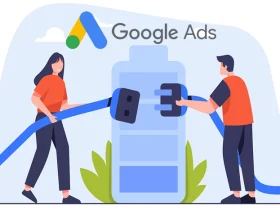
Lowering Google Ads spend while maintaining or even improving your digital marketing performance is a common goal for many businesses. A well-executed SEO strategy can significantly contribute to this goal by driving organic traffic and reducing reliance on paid campaigns. Here’s how you can use SEO to reduce Google Ads spend effectively:
Focus on High-Intent Keywords for Organic Traffic
Google Ads can be costly, especially when bidding on high-competition keywords. By optimizing your website for high-intent keywords — the terms people use when they are ready to convert — you can drive organic traffic that is more likely to result in conversions. Here’s how to identify and use them:
- Keyword Research: Use tools like Google Keyword Planner, SEMrush, or Ahrefs to find keywords with strong search volume and low competition.
- Long-Tail Keywords: These are often less competitive but highly specific, attracting users who are more likely to convert.
- Content Strategy: Optimize your content for these high-intent keywords to rank organically.
By focusing on these keywords, you can reduce your reliance on paid search campaigns, especially for terms with high competition.
Improve On-Page SEO
On-page SEO refers to the elements on your website that help it rank higher in search engines. The more optimized your pages are, the higher you’ll rank in organic search, meaning you can rely less on paid ads. Focus on:
- Title Tags & Meta Descriptions: Include your target keywords and make them compelling to encourage click-throughs.
- Content Optimization: Make sure your content is high-quality, relevant, and naturally includes your target keywords.
- Internal Linking: Improve the structure of your site by linking to relevant content internally. This helps Google understand your site’s hierarchy and improves user experience.
- User Experience (UX): Make your website easy to navigate, mobile-friendly, and fast-loading to reduce bounce rates, which can affect rankings.
By improving your website’s on-page SEO, you’re more likely to increase organic traffic, which can help lower your Google Ads spend.
Build High-Quality Backlinks
Backlinks are one of the most important ranking factors for Google. Quality backlinks from authoritative sites signal to Google that your content is valuable, which can improve your search rankings. While backlinking is a long-term SEO strategy, it can lead to a substantial reduction in Google Ads spend over time. Here’s how to build backlinks:
- Guest Blogging: Write articles for reputable websites in your niche and include backlinks to your site.
- Content Partnerships: Collaborate with other businesses or influencers in your industry for co-branded content that includes backlinks.
- Content Promotion: Share your content on social media or forums to get more visibility and encourage others to link to it.
The more authoritative and relevant your site becomes through backlinks, the more organic traffic you’ll get, decreasing your reliance on paid ads.
Optimize for Featured Snippets and Rich Results
Featured snippets are the boxed information that appears at the top of Google search results. By optimizing your content to rank for featured snippets and other rich results (like knowledge graphs and local packs), you can get more visibility without paying for ads. To optimize for featured snippets:
- Answer Questions: Google often pulls featured snippets from content that answers specific questions. Include questions and answers in your blog posts, FAQs, or landing pages.
- Structured Data Markup: Use schema markup to help Google understand your content better and increase your chances of appearing in rich snippets.
Appearing in featured snippets can drive significant organic traffic, which means you won’t need to spend as much on Google Ads.
Leverage Local SEO for Local Traffic
If you run a local business, optimizing your site for local SEO can significantly reduce your reliance on paid ads. When people search for local services, they often click on the businesses that appear in the local pack (the Google Map and Google Business listings shown in search results). Here’s how to optimize for local SEO:
- Google My Business (GMB): Claim and optimize your GMB listing. Ensure your business information is accurate and up to date.
- Local Keywords: Target location-based keywords in your content and meta descriptions.
- Local Citations: Get listed in local directories and ensure your business name, address, and phone number (NAP) are consistent across all platforms.
By increasing your visibility in local searches, you can attract more local customers without relying on paid Google Ads campaigns.
Monitor Performance and Adjust Strategies
SEO is an ongoing process, and to see its impact on your Google Ads spend, you need to track your performance. Use tools like Google Analytics, Google Search Console, and SEMrush to monitor organic traffic and conversion rates. You can then adjust your strategies accordingly:
- Adjust Ad Spend: As organic traffic grows, you can gradually reduce your Google Ads spend, focusing only on the most competitive or profitable keywords.
- Refine SEO Strategy: If certain keywords are driving traffic but not converting, adjust your content or on-page SEO to better align with user intent.
Regularly reviewing your SEO performance ensures you’re getting the most out of your efforts and can reduce your dependency on paid ads over time.
Consider an Integrated Approach
While SEO can significantly reduce Google Ads spend, an integrated approach that combines both strategies can be highly effective. You don’t need to choose one over the other. By optimizing your site for organic search, you can complement your Google Ads campaigns, targeting different stages of the customer journey. For example, you can use SEO to drive traffic to the top of the funnel, and Google Ads to target high-intent buyers further down the funnel.
This strategy ensures that you’re not relying too heavily on one channel and can keep costs under control while maximizing your online presence.
By focusing on SEO, you can build a sustainable foundation for organic growth and gradually reduce your reliance on paid search campaigns like Google Ads. While SEO takes time to show results, its long-term benefits make it a crucial strategy for reducing Google Ads spend and improving your overall ROI.




